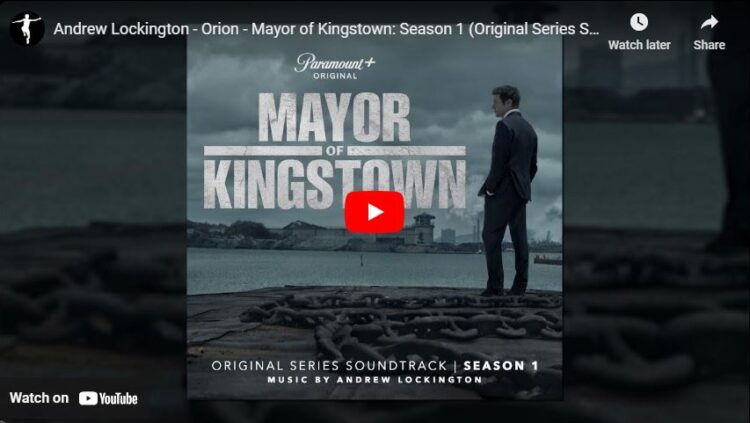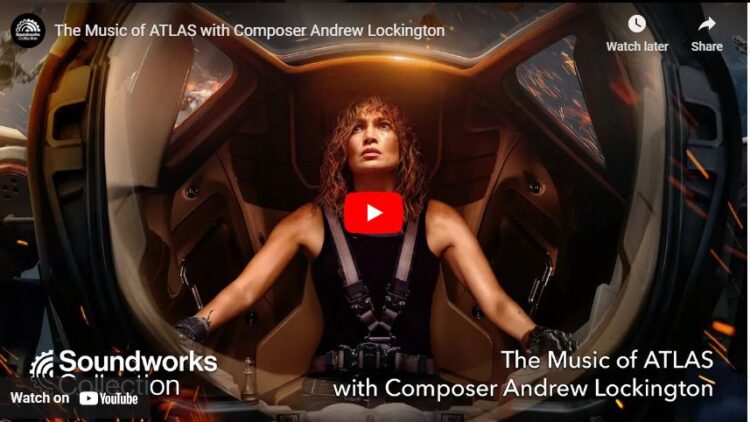The skill of composing a film score is akin to a magician’s sleight of hand. The measure of the soundtrack’s success lies in how seamlessly the music vanishes into the texture of the film, making its presence known only in the emotional resonance it adds to a scene, or to an actor’s performance.
One of the most accomplished magicians in this realm is Andrew Lockington, a screen composer who’s won a dozen SOCAN Film Awards, and has scored two movies that hit No. 1 at the U.S. Box Office – both starring Dwayne Johnson and directed by Brad Peyton: San Andreas and Rampage.
His mastery of the magical craft continues, in full effect, on multiple concurrent projects. He recently scored the second season of Lioness, starring Zoe Saldana and Nicole Kidman, and the third season of director Taylor Sheridan’s ongoing thriller Mayor of Kingstown, as well as Sheridan’s brand new series Landman, featuring Jon Hamm, Billy Bob Thornton, and Demi Moore. Lockington notes that working together over multiple projects serves both composers and directors in calibrating their common craft.
The screen composer divides his time between his native Toronto, Los Angeles, and the far-flung locales where he collects sounds. Before the script for Peyton’s recent sci-fi AI fable Atlas was even finalized, he travelled to Japan’s Sendai region, recording the chants of monks and ambient sound in Shinkansen (bullet train) stations.
“I came back with this wealth of sonic material, both very ancient and super-modern,” says Lockington, who was captivated by the harmonious correspondence between the two. “Japan is so technologically advanced, and yet has incredible spirituality, and traditions, that survive in tandem.” This tension resonated in Jennifer Lopez’s character, Atlas, a data analyst distrustful of AI, who nevertheless must integrate it in order to survive a catastrophic mission.
“The lion’s share is coming up with the themes – three or four good earworms to internalize”
Lockington’s own sense of mission was formed during the golden era of 1970s and 1980s Hollywood, the heyday of blockbusters from George Lucas and Steven Spielberg, and the iconic scores of John Williams. After studying composition at Kitchener-Waterloo’s Wilfred Laurier University (he left one credit shy of graduating), he got his start writing advertising jingles, but movies were on his mind. A self-initiated mentorship with Canadian film composer Mychael Danna progressed from re-stringing guitars to doing orchestration, which was an important initiation to the film industry. It led to several co-credits on films for television, and launched his career.
“It was a very seamless step in my evolution,” says Lockington. “Learning the creative interaction between a director and a composer, learning how to present ideas to a studio. It taught me there’s so much more to the job than sitting alone writing melodies!… It’s a collaboration between multiple key people, and you have to make sure you’re part of the team, and not rogue, as sometimes happens in our industry.”
Learning these soft skills of collaboration and pitching served him well when he graduated to his first big studio film with a professional orchestra. “I remember sitting in the London, U.K., studio, and the orchestrator asked, ‘Are you nervous?’” says Lockington. “And I thought, ‘No, because I’ve been sitting in this spot for years.’”
One challenge of screen composing (especially for television) is the pace of compressed schedules. He credits his ability to generate multiple musical ideas quickly as key to getting consistent work. “For me, the lion’s share is coming up with the themes – three or four good earworms to internalize,” says Lockington. “You’re writing for 10 hours of television in two-and-a-half months: writing it, recording it, mixing it! I’ve figured out the architecture: whether deploying over two hours or ten, the initial seed is the same. I love that I can come up with themes, similar to a film, but evolve those themes over 10 hours instead of two.”
Typically in movie work, separate teams work on the nut-and-bolts of sound design and the world-building work of the score, but there’s plenty of cross-pollination. On Atlas, Lockington shared field recordings from Miyagi Prefecture with the sound effects team. In turn, the slowed-down pitch of a high-speed train entering a tunnel was transformed into a live cue for the orchestra to play to. And sometimes, though rarely, he gets to witness something similar – on set.
“I did a series called Poacher with [film director] Richie Mehta last year,” he says, describing a sketch of music that hadn’t yet found a home in a scene. Mehta knew instantly. “He said, ‘Oh! This is the train chase sequence.’ And because he hadn’t yet filmed it, he played the music I’d written as the actors were running through, and the timing of it is so spectacular – because they’re moving at the pace of the music, not marching, but sort of a [dance] improv. It’s astounding how well it worked.”
Lockington laughs in delight. “I pitched him the idea that we do all future projects this way!”

